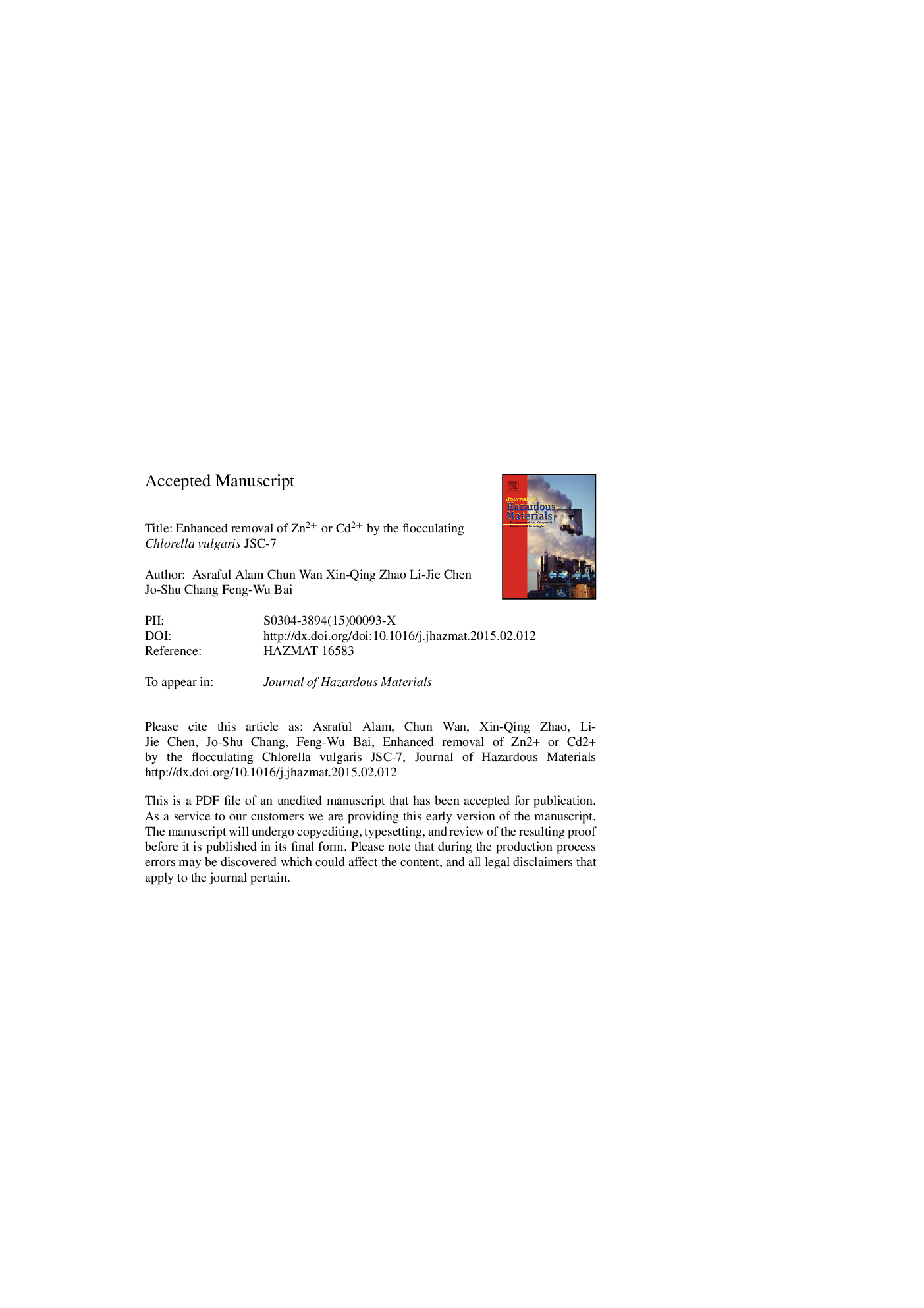| Article ID | Journal | Published Year | Pages | File Type |
|---|---|---|---|---|
| 576180 | Journal of Hazardous Materials | 2015 | 26 Pages |
Abstract
Microalgae are attracting attention due to their potentials in mitigating CO2 emissions and removing environmental pollutants. However, harvesting microalgal biomass from diluted cultures is one of the bottlenecks for developing economically viable processes for this purpose. Microalgal cells can be harvested by cost-effective sedimentation when flocculating strains are used. In this study, the removal of Zn2+ and Cd2+ by the flocculating Chlorella vulgaris JSC-7 was studied. The experimental results indicated that more than 80% Zn2+ and 60% Cd2+ were removed by the microalgal culture within 3 days in the presence up to 20.0Â mg/L Zn2+ and 4.0Â mg/L Cd2+, respectively, which were much higher than that observed with the culture of the non-flocculating C. vulgaris CNW11. Furthermore, the mechanism underlying this phenomenon was explored by investigating the effect of Zn2+ and Cd2+ on the growth and metabolic activities of the microalgal strains. It was found that the flocculation of the microalga improved its growth, synthesis of photosynthetic pigments and antioxidation activity under the stressful conditions, indicating a better tolerance to the heavy metal ions for a potential in removing them more efficiently from contaminated wastewaters, together with a bioremediation of other nutritional components contributed to the eutrophication of aquatic ecosystems.
Related Topics
Physical Sciences and Engineering
Chemical Engineering
Chemical Health and Safety
Authors
Md. Asraful Alam, Chun Wan, Xin-Qing Zhao, Li-Jie Chen, Jo-Shu Chang, Feng-Wu Bai,
